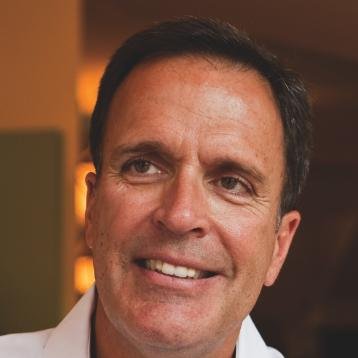The Four-Letter Word that Makes You and Your Work Irresistible
Description
Some years ago I wrote a book about an extraordinary individual who loves his work. My editor at the time deleted the word love every place I used it. Instead, he suggested using the phrase "generosity of spirit."
"Why not love?" I inquired.
"Because the word love freaks out businesspeople," he responded.
In my estimation, he was half-right. I think the word love freaks out most people, especially when applied to work. That's because more often than not it is associated with sugary sweet emotion or sentimentality. "I love my colleagues." "I love my customers." "I love the daily grind." Hollow. Superficial. Cliché.
Nobody I know loves every aspect of her or his job. I don't know of any perfect jobs in this imperfect world. I wish they existed. But I know that it is possible to love the work we perform, love the people we work with, and love the people we ultimately serve. We can do it without going over the top or becoming saccharine.
What does love look like when it shows up for work? If you pay attention, you'll notice it more often than you think.
A few months ago, I spent time at the Ritz-Carlton in downtown Atlanta. Everyone you'll meet at the Ritz is typically on top of his or her game. The staff refers to you by name and exhibits the attitude of "ladies and gentlemen serving ladies and gentlemen." Their unique brand of service will ruin you for all other hotel chains. But it also makes it challenging for a Ritz-Carlton employee to truly stand out.
After a night's rest, I entered the hotel restaurant and took my place in line at the breakfast buffet. A chef named Jeremy staffed the omelet station. "What can I prepare for you, sir?" he asked.
I ordered an egg-white omelet with lots of vegetables, ham, and a little cheese. "You've got to add a little cheese to an egg-white omelet;" I shared with Jeremy, "otherwise it's just too boring."
"Not my omelets!" he boomed. "They're never boring. That's because I add a special ingredient. He paused for effect. "I make my omelets with loooovvvveeee!"
His unorthodox pronouncement got my attention, but I smiled politely and took the plate. With one bite, I could tell that Jeremy had created an extraordinary dish for me. A few moments later, he came by the table to see how I liked it. I told him it was terrific, probably because it was made with love. Jeremy got serious for a moment and said, "If you can't do it with love, why do it at all?"
Chef Jeremy gets it. He understands that when we allow love to define who we are as we work, we become irresistible leaders with a contagious passion for what we do.
Defining the Irresistible Ingredient
To begin, we must reorient our conventional understanding of the term love, defining it as finding a deep-seated passion for what we do, the people we do it with, and the people we do it for. Regardless of the type of work we do, we can find fulfillment and meaning in at least one of these areas.
Take Sam, for instance.
One hot South African afternoon, a stranger photographed him carrying a frail 75-year-old man down the side of a busy road. The rescued man had missed his bus home and collapsed outside the Pick n' Pay where Sam Tsukudu has worked for twenty-plus years.
Sam's heroic act of kindness is just part of who he is. He walks a blind man home from the store every week and helps him unpack his bags. Over a decade of friendship, Tsukudu decodes what groceries Chandler needs, using bits and pieces of empty cartons and labels.
According to one of Sam's customers, "We can't imagine Pick n' Pay without him. He always comes to our rescue and says, "Don't fear; Sam is near."
I don't know Sam, obviously, but I'd be willing to wager he loves his work and his customers. When I first read the story, I was reminded of Duke Ellington. He used to end his performances with "Love you madly!"
Can you say-or at least think-something like that at the end of your "performance" each day? Do you find satisfaction or fulfillment in your daily responsibilities? Do you enjoy working with your colleagues on specific projects or for a common cause? Do you desire to see your business or company have an impact on your town, city, or country? And if no, why not?
The Offspring of Love at Work
Ernest Dimnet in The Art of Thinking wrote, "Love, whether it be the attraction of Truth, or pure, simple, elemental love, always opens up the intellect and gives it freedom of genius."
We all work. Whether we cook omelets, prepare taxes, sell cars, or lead corporations, we spend more than one-third of our lives in the workplace. We can choose to blend in, putting in our time with one eye on the clock, or we can take part in something bigger than ourselves. We can find satisfaction and meaning in our jobs every single day, but perhaps even that is aiming too low. Maybe we ought to be pursuing and living out genius.
When we add the irresistible ingredient of love into every element of our work, a job becomes an occupation, then becomes a career, and then becomes a successful career. We will build meaningful relationships with our colleagues. We will cultivate solid, trustworthy business relationships with our clients. And we will develop a very real, satisfying connection with the actual tasks at hand.
A positive cycle develops quickly, greatly impacting the effectiveness of our business. When we deliver them with love, our products and services become more attractive, leading to better customer response, greater employee retention, and more. Best of all, the results will invariably lead to a sense of personal fulfillment and renewed motivation.
Anyone can add love to his or her work, but nobody has to. The imperative benefits as much the individual-the lover-as it does the object of its practice. Yet while the irresistible ingredient is there for the taking, not everyone partakes.
According to an article in USA Today, a Dutch psychologist investigated the differences between chess masters and grand chess masters. He found no difference in IQ, memory, or spatial reasoning. The only difference he could identify: the grand masters simply loved chess more. He concluded that they had more passion about and commitment to the game.
I've observed that you don't have to love what you do to be very good at it. I know very competent and successful individuals who have developed the skills to succeed at their work. By their own admission, they see what they do as a means to an end. They don't love their work, nor are they passionate about it. They are, however, good at it.
But when it comes to greatness, I intuitively concur with the Dutch researcher. The inspired performers, the über-achievers and the grand masters of life seem to share a common denominator.
Love is the difference. This four-letter word will make you and what you do quite irresistible.
 Overcome challenges with guided prayer, journal prompts, and God’s wisdom using iDisciple Growth Plans.
Overcome challenges with guided prayer, journal prompts, and God’s wisdom using iDisciple Growth Plans.

-12.png)








